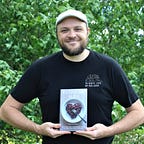You Don’t Have to do Everything You Can Possibly do
I have this recurring dream that I’m back in a former job as a news editor. It’s Friday afternoon, the time of the week when we always prepared all the content for the Saturday, Sunday and Monday newspapers. The newsroom is empty, and so is the list of stories that will fill the papers. I panic. How did I not do more work during the week to prepare for the weekend and prevent this problem? I worked 60 hours, and it still wasn’t enough. Instead of taking time to have dinner with my parents that one night, I should have stayed in the office and got more accomplished.
Thank goodness that nightmare work scenario is just a dream, but it mirrors a troublesome reality in many of our lives. Our culture has come to embrace filling every second of time possible. I believe much of that culture has been created in our working lives. Supervisors and coworkers pressure us to perform, earn and advance at impossible levels, so we just keep on working every chance we get.
The feeling that we must be productive then bleeds into our personal lives. We always have a nagging urge that we should do more for our children or our aging parents. Our friends don’t get to hang out with us enough. Our church or volunteer organization needs more of our time. Hobbies or side-hustles we’ve launched aren’t active and thriving enough.
In some way, we’re always on the clock for something in this “what have we done lately” world. When is enough truly enough?
The answer’s actually quite simple.
Enough is whatever and whenever we say it is.
Each of us own our time each day, and no one else should have the power to decide how we spend our precious seconds.
I suffer through incredible fights with anxiety. There’s a constant voice in my brain that says I should be doing something that I’m not doing, kind of like in the dream I have that reminds me I haven’t filled up that list of newspaper stories for weekend editions. If there are seconds of time when I’m awake, then I should take advantage of them.
That thought process is all wrong because it’s bad for our mental and physical well-being.
We need time when we’re doing nothing. Some of the best ideas come from daydreaming in our chairs, walking aimlessly down the street or taking a calm drive through the countryside. When we allow ourselves to focus on the moment and not the destination or goal, we can lose sight of the persistent to-do list we all seem to keep. Yeah, the list is important, but so is our mental health.
2020 has been a yearlong assault on our mental well-being. We need to be kind and easy on ourselves more than ever. Part of doing that is realizing we don’t have to do everything we can possibly do.
Did you catch that last part? It’s very important.
You don’t have to do everything you can possibly do.
Yes, we could be using a few open minutes to take care of unsent work emails, undone home chores or countless other unfinished possibilities. Oftentimes, those things can all wait. It’s okay to take a few moments, or many moments, to do whatever we want at that time — or to do nothing at all.
Productivity is over-emphasized, overbearing and overrated. As we complete a very challenging year — living through it a major feat in itself — and prepare to begin a clean slate in 2021, here’s your reminder that it’s okay to take care of yourself. If that means some things don’t get done for a while (or ever), that’s all right! Maybe giving yourself permission to relax will lessen your stress, allow you to feel calmer and keep you from having the kinds of dreams that invade my sleep so often.
Matthew Tessnear is a North Carolina author who writes about mental health, food, history and sports from his perspective in the American South. He shares a regular series titled “What it’s Really Like…” here on Medium. You can follow him on Twitter @MatthewTessnear.
